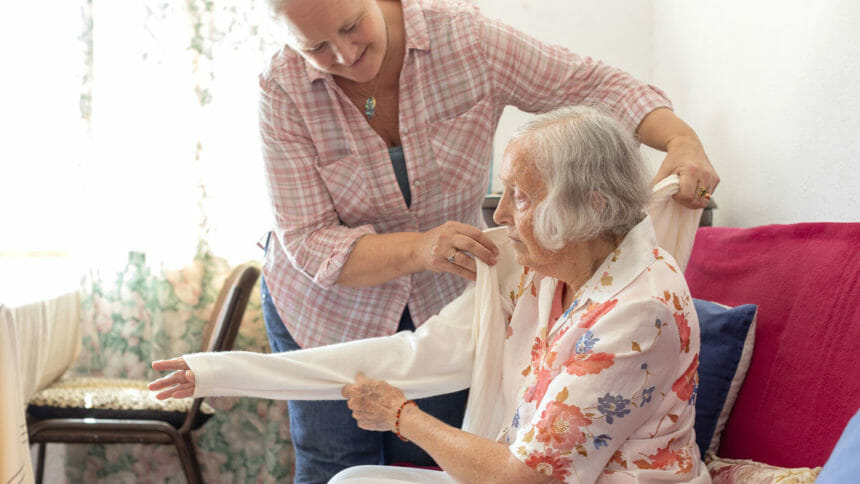
The COVID-19 pandemic worsened the plight of unpaid, or family, caregivers, according to a new study from the University of Chicago Medicine.
Before the pandemic, women caregivers had significantly higher odds of experiencing health-related socioeconomic vulnerabilities such as food insecurity, financial strain and transportation difficulties compared to non-caregivers, with 63% of caregivers reporting at least one vulnerability compared to 47% of non-caregivers.
During the early days of the, caregivers had higher odds of experiencing new or worsening financial strain, as well as new interpersonal violence, food insecurity, transportation difficulties and housing insecurity. The results were published September 26 in the Annals of Family Medicine.
“Many adults provide care to other adults; one in five U.S. adults and one in three women are providing care to someone who is a parent, sibling or friend, who needs assistance on a daily basis,” Jennifer Makelarski, PhD, MPH, senior epidemiologist at the University of Chicago and senior author on the study, said in a statement.
“These caregivers fill a critical role in healthcare. If caregivers suddenly weren’t able to provide care for whatever reason, we’d have a problem. Our system couldn’t handle the sudden influx of support needs,” she said.
A total of 1 in 5 U.S. adults provided unpaid care for another adult in 2020. This group provides essential support but they pay a toll in terms of emotional and physical strains. There is also a steep financial price. Average annual out-of-pocket costs for caregivers is $7,242, approximately one quarter of their income.


